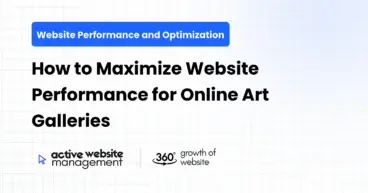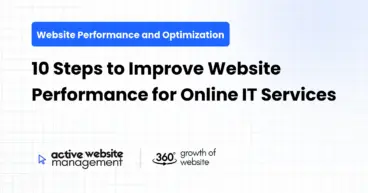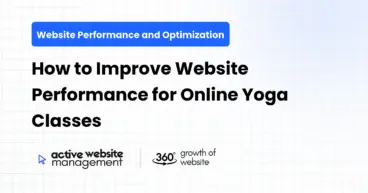December 13, 2024
8 min read
As the holiday season approaches, e-commerce businesses experience an uptick in traffic, sales, and customer expectations. The holiday rush means that your e-commerce website needs to be fully optimized to handle increased visitors, provide a smooth shopping experience, and, ultimately, maximize conversions. Whether you run a Shopify store, a WooCommerce site, or any other platform, optimizing your website for the holiday season is crucial for success.
In this guide, we’ll take you through actionable strategies to ensure your e-commerce website is ready for the holiday season. We’ll cover everything from technical optimizations to UX improvements, SEO strategies, security best practices, and performance enhancements to help you thrive during this critical period.
1. Why Optimizing E-Commerce Websites for the Holiday Season is Crucial
The holiday season brings in the highest sales volume for many e-commerce businesses. According to Statista, in 2023, global holiday retail sales exceeded $1 trillion. However, this massive opportunity also comes with challenges. Websites that aren’t optimized for this spike in traffic risk frustrating customers, losing sales, and damaging their reputation. Optimizing your e-commerce site ensures it can handle the increased demand and provides a seamless shopping experience that keeps customers coming back.
Before diving into specific optimizations, it’s important to understand the shopping behavior during the holiday season. Consumers are typically:
- More Likely to Shop Online: E-commerce becomes a preferred shopping method due to convenience and the avoidance of crowded stores.
- Looking for Deals: Discounts, free shipping, and holiday promotions are major drivers of holiday shopping.
- Increased Mobile Usage: Many shoppers will browse and make purchases on mobile devices, making mobile optimization more important than ever.
- Less Patient with Slow Websites: Research shows that 47% of consumers expect a webpage to load in two seconds or less. A slow site could result in cart abandonment.
3. Key E-Commerce Website Optimizations for the Holiday Season
Don’t Just Maintain Your Website—
Grow It using Active Website Management! Don't Wait for Growth—Accelerate It with Active Website Management
Website speed is one of the most critical factors for holiday sales. Shoppers expect fast-loading pages, especially when they’re trying to grab the best deals. Slow websites lead to higher bounce rates and cart abandonment.
- Optimize Images: Large image files can significantly slow down your website. Use image compression tools to reduce file sizes without sacrificing quality.
- Use a Content Delivery Network (CDN): A CDN stores copies of your website on multiple servers around the world, reducing load times by serving your site from the nearest server.
- Enable Caching: Implement browser and server-side caching to reduce the load on your server during traffic spikes.
For a more detailed guide on improving website performance, check out our Caching for WooCommerce Performance article.
2. Mobile Optimization
With mobile shopping accounting for over 50% of e-commerce sales, ensuring your website is fully optimized for mobile is essential. If your site isn’t responsive or mobile-friendly, you risk alienating a huge portion of your customer base.
- Responsive Design: Ensure that your website adjusts to different screen sizes without losing functionality.
- Touch-Friendly Navigation: Make sure buttons, menus, and other clickable elements are easy to tap on mobile devices.
- Mobile Checkout Process: Simplify your checkout process for mobile users by minimizing form fields and offering autofill options.
3. Simplify the Checkout Process
During the holidays, customers are often in a rush to complete their purchases. A complicated or lengthy checkout process can result in cart abandonment. Focus on reducing friction in the checkout process.
- Guest Checkout: Allow customers to check out without creating an account to save time.
- Multiple Payment Options: Offer a variety of payment methods, including credit cards, PayPal, Apple Pay, and Google Pay.
- Auto-fill and One-Click Checkout: Integrate auto-fill features and one-click checkout options for returning customers to speed up the process.
4. Enhance Product Pages and Navigation
During the holiday season, customers often browse multiple products before making a decision. It’s essential to optimize your product pages and website navigation to improve the shopping experience.
- Product Filters: Help customers quickly find what they’re looking for with filters based on price, category, size, and other attributes.
- High-Quality Product Images: Provide multiple product images, including close-ups and 360-degree views, to help customers make informed purchase decisions.
- Clear Product Descriptions: Include detailed product descriptions, dimensions, and specifications to avoid confusion.
4. Active Website Management During the Holiday Season
An optimized website requires continuous monitoring and updates, especially during the busy holiday period. Active website management ensures that your site remains stable, secure, and performing at its best.
1. Regular Site Audits and Updates
Even if your site is optimized, issues can still arise. Regular site audits can identify potential problems before they impact your customers. Schedule frequent site health checks to ensure everything is functioning smoothly.
- Audit Your Site for Broken Links: Broken links can frustrate customers and hurt your SEO rankings. Use tools like Screaming Frog to scan your site for errors.
- Update Themes and Plugins: Ensure your themes, plugins, and extensions are up to date to avoid compatibility issues, especially with the latest holiday sales features.
2. Real-Time Monitoring and Troubleshooting
The holiday season can bring unexpected traffic spikes, which could lead to performance issues. It’s essential to monitor your site in real time to catch any problems early.
- Use Website Monitoring Tools: Tools like UptimeRobot can alert you if your site goes down, enabling you to fix issues before they affect your customers.
- On-Demand Troubleshooting: Be prepared to troubleshoot quickly, whether it’s a checkout error, payment gateway issue, or broken feature.
5. SEO Best Practices for the Holiday Season
Holiday shoppers are often in a hurry, and your site’s visibility in search results can make a big difference in your sales.
1. Update Your Content Strategy
Holiday-specific content can attract more visitors to your site. Create blog posts, gift guides, and landing pages that target holiday-related searches.
- Gift Guides: Create gift guides for specific audiences (e.g., “Best Holiday Gifts for Tech Lovers”).
- Seasonal Blog Posts: Publish blog posts related to holiday shopping trends, gift ideas, and special offers.
Don't Wait for Growth—Accelerate It with
Active Website Management Don't Wait for Growth—Accelerate It with Active Website Management
2. Optimize for Holiday Keywords
Make sure your website is optimized for holiday-related keywords. Use tools like Google Keyword Planner to identify relevant keywords and incorporate them into your product descriptions, meta titles, and content.
- Seasonal Keywords: Focus on keywords like “holiday sale,” “Christmas gifts,” “Black Friday deals,” and others.
- Product-Specific Keywords: Include keywords that describe specific items (e.g., “best Christmas gift for dad”).
3. Leverage Local SEO
Local SEO becomes more important during the holidays, especially for businesses that offer in-store pickup or local delivery. Optimize your Google My Business profile and create location-specific content to attract nearby shoppers.
6. Security and Compliance for Holiday Shoppers
As more people shop online, ensuring your website is secure becomes even more critical. A compromised site could lead to lost sales and damaged reputation.
1. Secure Your Website with HTTPS
Ensure your website is secure by using HTTPS (SSL encryption). Not only is this necessary for protecting customer data, but it also boosts trust and is a ranking factor for Google.
2. Implement Strong Payment Gateway Security
Holiday shoppers will be making transactions, so ensuring your payment gateway is secure is critical.
- PCI DSS Compliance: Ensure your payment gateway meets the Payment Card Industry Data Security Standard (PCI DSS) to protect customers’ credit card information.
- Two-Factor Authentication: Implement two-factor authentication for added security when processing payments.
3. GDPR and Privacy Considerations
Be aware of data privacy regulations such as GDPR (General Data Protection Regulation) in Europe. Make sure your website complies with these regulations by offering opt-in consent for data collection and being transparent about how customer data is used.
7. Customer Experience Optimization
Delivering a top-notch customer experience is key to securing repeat sales and positive reviews.
1. Personalization
Personalize the shopping experience by recommending products based on previous purchases or browsing behavior. Use dynamic content on your homepage and email campaigns to provide tailored suggestions.
2. Chatbots and Customer Support
Ensure customer queries are addressed quickly with live chat or chatbot support. Holiday shoppers may have questions about shipping times, product details, or returns, and timely responses can help close sales.
Offer time-sensitive promotions and discounts to encourage immediate purchases. Flash sales, bundle deals, and free shipping can drive urgency and increase conversions.
8. Conclusion
The holiday season is a time of tremendous opportunity for e-commerce businesses, but it also comes with its challenges. By optimizing your website for performance, user experience, SEO, and security, you can ensure your e-commerce store is ready to handle the holiday rush and provide an exceptional shopping experience for your customers.
With the strategies outlined above, your site will be well-positioned to not only meet the increased demand but to exceed customer expectations, ultimately driving higher sales and long-term customer loyalty. Happy holidays and successful selling!






